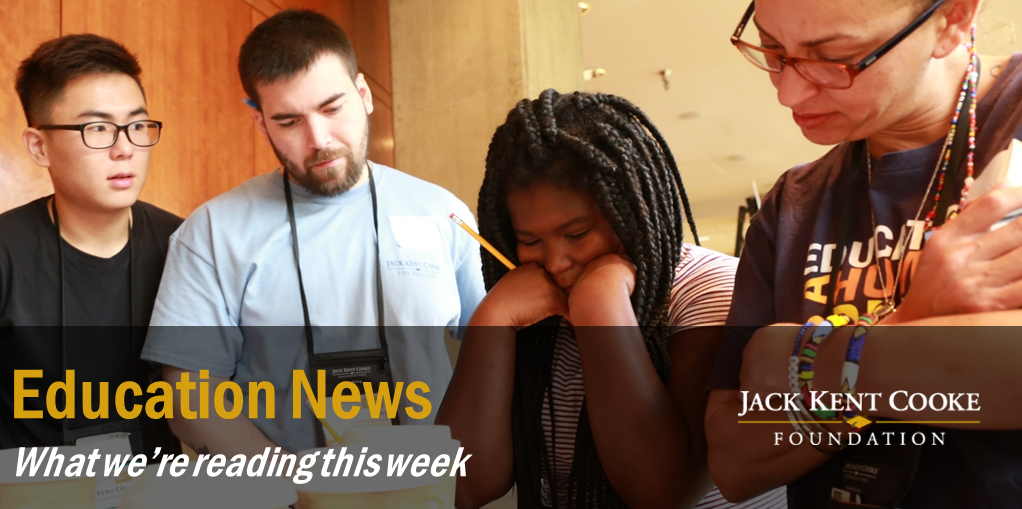Posted November 6, 2015 | By Cooke Foundation Staff

November 6, 2015—Our weekly roundup of the biggest news you might have missed! This week, reports examine global education trends and the different ways college cost and access are addressed by states and institutions.
Elementary and Secondary Education:
- The New York Times published two excellent pieces calling attention to the education disparities low-income students face:
- Natasha Singer finds that students without regular access to computers or the internet at home must sometimes rely entirely on using their smartphones to complete homework assignments.
- Program for International Student Assessment (PISA) data has policy wonks debating the roles poverty and society play in educational attainment. Eduardo Porter contrasts various interpretations and asks, “Is it reasonable to ask public schools to fix societal problems that start holding disadvantaged children back before they are conceived?”
Higher Education:
- U.S. News & World Report shares an interactive map of the most economically diverse colleges and advises low-income students to consider selective institutions, because of their larger financial aid packages, retention services, and higher completion rates.
- College students in different states face very different challenges when it comes to the affordability of public higher education. The Urban Institute has created a webpage with interactive displays of each state’s enrollment, funding, and tuition trends to complement two new studies on the evolution of public higher education funding and variation across the states.
- Alabama has been tinkering with college promise initiatives in parts of the state with high family poverty rates and now, shares The Hechinger Report, the parents of this year’s cohort of sixth- and seventh-grade students will themselves be eligible for free community college tuition.
- NewsWorks reports how a mix of guilt, homesickness, difficulty engaging with more affluent peers, and family interdependence are factors that propel many first-generation students to catch rides home on the weekends, rather than engage in campus activities.
- Noting that a lack of affordable transportation can be a college access issue, The Hechinger Report describes how providing a free shuttle bus at the College of Staten Island has led to improvements: “Overall enrollment at the college has increased by only 15 percent since the shuttle was started, but the numbers of black and Latino students have increased by 49 and 43 percent respectively.”
- The American Academy of Arts and Sciences announces a new Commission on the Future of Undergraduate Education. The Chronicle of Higher Education describes the commission’s intent to publish a comprehensive report in 2017 to examine higher education’s changing options and opportunities.
Cooke Foundation Highlights:
- For those who will be in Washington, D.C., this Monday, our Good Neighbor grantee College Summit will be hosting a documentary screening with Jubilee House. Destination: Opportunity features the experiences of two D.C. students attending a College Summit workshop. The event will be held at Busboys & Poets from 6:00-7:00 p.m. EST. RSVP here to attend.
- Cooke Scholar Nuno Pereira has been appointed the student representative to the Board of Trustees at Union County College, reports TAP into Cranford.
- The Cooke Undergraduate Transfer Scholarship application is open! Community college students who wish to continue their studies at a four-year institution in fall 2016 can apply now through December 15, 2015. Cooke Scholars will receive up to $40,000 for each year – plus college planning support, ongoing advising, and the opportunities for study abroad and internship stipends. They also become eligible for a $50,000 per year Cooke Graduate Scholarship. Click here to learn more and apply.
- Our Good Neighbor Grants program is accepting proposals from nonprofit organizations in the Northern Virginia, Washington, D.C., and Maryland areas that are helping students with significant financial need reach their full potential through education. The Cooke Foundation will award grants between $10,000 – $35,000. Learn about our eligibility requirements, and apply now through December 3, 2015.
